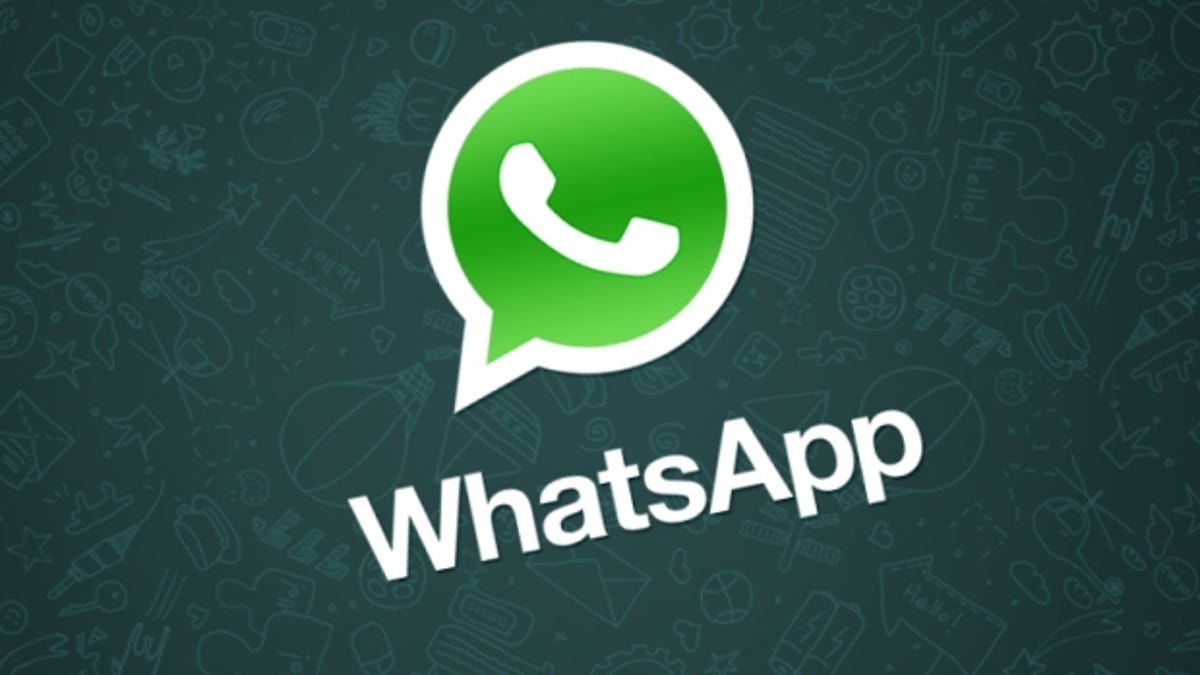WhatsApp faces standoff with feds over its message encryption
A judge has approved a wiretap via WhatsApp in a criminal investigation, but first the messages would need to be decoded.

Whatsapp is the latest company to thwart the government with its built-in message encryption.
WhatsApp, the Facebook-owned maker of an instant-messaging app, may face the same legal conundrum as Apple in a case that centers on the thorny issue of privacy versus security.
The US Department of Justice is eager to view a series of WhatsApp messages for a criminal investigation, a move that has been given the go-ahead by a federal judge, The New York Times reported Saturday. But the messages are encrypted, meaning no one, not even WhatsApp, can unscramble them so that they're readable.
The Justice Department is reportedly trying to decide if it should ask a judge to force WhatsApp to find a way to decode the messages. That's the course it's already taking in its battle with Apple, in which the company is pushing back against a court order to unlock the data on an iPhone 5C used by one of the terrorists who killed 14 people in San Bernardino, California, in December.
Both cases shine a light on the conflict between individual privacy and national security. Tech companies, privacy advocates and others have argued that encryption, which scrambles private data so it can read only by people with authorized access, is necessary to safeguard personal information and communications. The government and law enforcement officials counter that argument, saying the technology hinders their ability to investigate criminal and terrorist activity.
Some law enforcement investigators see the WhatsApp issue as more critical than the Apple case as it centers on their ability to perform wiretaps, a common tool for fighting crime. They want the Justice Department to ask a judge to compel WhatApp to provide access to the data. Other investigators say the agency is "reluctant to escalate the dispute," the Times added.
The government's standoff with Apple has shown that the ability to unlock private data is far from a clear-cut issue, even in important criminal or terrorist investigations. The companies don't have the keys to encrypt the data, so accessing the information would require extraordinary measures. Apple would have to create a new custom version of its iOS mobile software to unlock the iPhone tied to the San Bernardino incident. The government says the repercussions would be limited, but the company has argued that to do so would make all iPhones more vulnerable to hackers and foreign enemies.
Even James Comey, director of the FBI, which is trying to get access to the iPhone, told Congress earlier this month that encryption is "vital" and that "there are undoubtedly international implications" if the government tries to break it, the Times said.
To try to find a middle ground where user data is protected but criminal investigations are unimpeded, Sen. Mark Warner, a Democrat from Virginia, and Rep. Michael McCaul, a Republican from Texas, are looking to start a commission to examine digital security. The goal would be to gather together the necessary experts to help congress decide how to move forward in balancing security and privacy between law enforcement and the private sector.
The issue also extends beyond the United States. Last month, a Facebook executive was arrested in Brazil for not turning over data from a WhatsApp account linked to a drug trafficking investigation.

